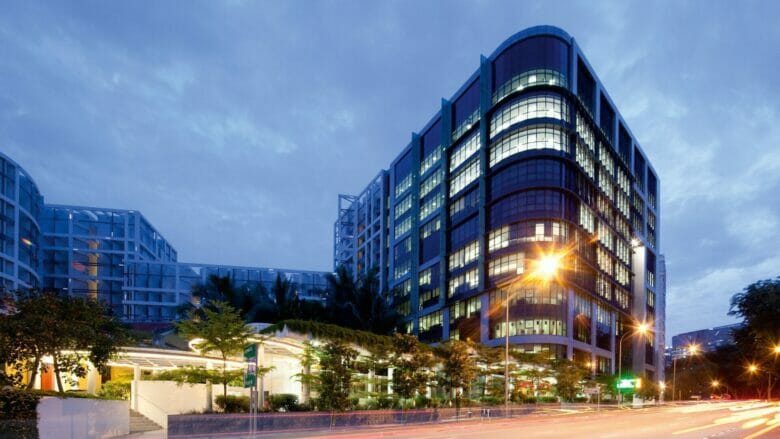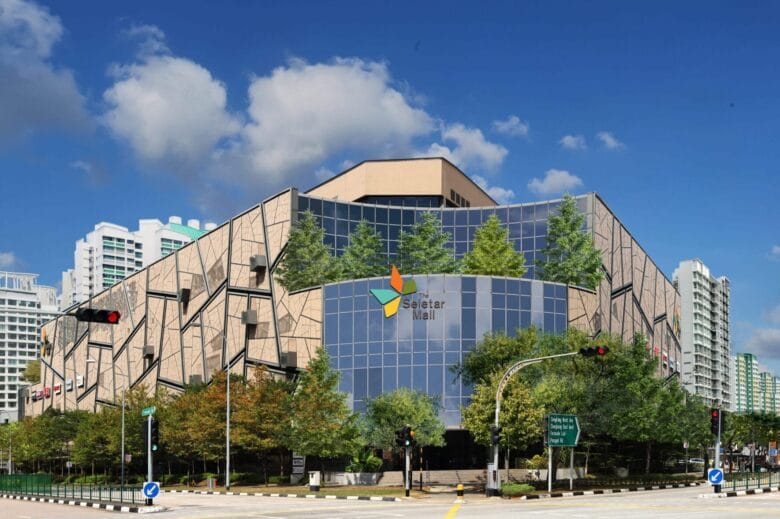

VisionCrest is Singapore’s single major office asset to change hands in the first quarter.
Trades of income-earning real estate in Singapore plunged to $1.8 billion in the first quarter from $4.2 billion a year ago, recording the steepest drop of any major market in Asia Pacific, according to MSCI Real Assets.
While falling rents and foreclosure sales have kept Hong Kong’s real estate market in the headlines, trades of investment properties in the city fell just 51 percent in the first three months of this year compared to January through March 2023, while Singapore declined by 56 percent over the same interval, MSCI’s numbers show.
In the 12 months ending 31 March, trades of Singapore investment properties were down 47 percent year-on-year to $6.4 billion, with TE Capital Partners and LaSalle Investment Management’s S$450 million ($331 million) purchase of VisonCrest Commercial standing as the only major office deal closed in the Asian financial hub last quarter.
With deals for deskspace slowing, MSCI pointed to Singapore’s suburban retail sector as continuing to attract investors with Robert Kuok’s Allgreen Properties buying the Seletar Mall in the Fernvale area for S$550 million in the largest single-asset deal in the city-state during the first quarter. That deal ranked as the fifth largest transaction across APAC during the first three months of the year.
Retail Takes the Lead
With major transactions like Bright Ruby’s S$908 million attempt to purchase the Far East Shopping Centre on Orchard Road failing to close, Singapore’s first quarter decline in deals outpaced the 13 percent region-wide slide in investment during the period. Despite the precipitous drop, Singapore remained the fourth most active investment market in the region, behind Tokyo, Seoul and Shanghai, MSCI’s data showed.


Seletar Mall bags Singapore’s largest property deal in the first quarter. (Image source: Cuscaden)
With the office market having gone quiet, retail accounted for more than a third of all property investment in the Lion City during the period, with nearly $700 million of malls and shopping centres traded. The retail tally for the first quarter was down 75 percent from the $2.85 billion in deals recorded during the same period a year ago when the city witnessed a significant portfolio sale.
During the first three months of 2023, Mercatus Co-operative closed on its sale of a pair of suburban mall properties to Link REIT for $1.6 billion, while Frasers Centrepoint Trust (FCT) and its sponsor, Frasers Property, had paid the unit of Singapore’s NTUC nearly $500 million for a half stake in NEX, the largest mall in northeast Singapore.
MSCI noted that suburban retail continued to offer attractive returns this year with Allgreen having acquired the Seletar Mall in March at a 4 percent yield. Also among significant retail deals closing last quarter was SGX-listed FCT acquiring an additional 24.5 percent stake in NEX from its sponsor, Frasers Property, for S$523 million.
“Suburban malls have continued to transact over the past few quarters, despite pricing being near peak levels and yields still in line with longer-term averages,” MSCI said.
Singapore’s retail resilience is in line with a regional trend, with investors having acquired $7.4 billion in shopping centres and malls across Asia Pacific in the first three months of this year to account for nearly a quarter of all property investment during the period.
“Appetite for retail has started to pick up in recent quarters. This points to a trend of investors seeking value in the sector that has seen the most substantial repricing in the region,” MSCI said.
Office Deals Plunge 54%
Once a hotbed for investment, Singapore’s office market recorded only $387 million in office deals last quarter, which was down 54 percent from $850 million a year ago, and lagged behind regional peers like Seoul and Tokyo,.
The city-state’s sole major office transaction during the first three months of 2024 was TE Capital Partners and LaSalle Investment Management acquiring VisionCrest Commercial from German asset manager Union Investment Real Estate. Having renamed the property as VisionCrest Orchard, the new owners have already launched a set of asset enhancements to boost its green credentials and align it with the rejuvenation of the Orchard Road area.
While appetite for offices waning, MSCI said investors are now favouring the living and hospitality sectors.
“Office market activity (including strata sales) has slowed to a trickle, meaning the number of office deals over the past year fell below both industrial and retail. Focus has shifted to the residential and co-living sectors, with three hotels acquired for conversion in the first quarter of 2024,” MSCI said.
During January a pair of funds managed by CapitaLand concluded their S$238 million purchase of the Hotel G in Singapore’s Bugis-Bras Basah precinct from Gaw Capital Partners, with the new owners intending to reopen the property as a co-living property managed by CapitaLand’s Ascott unit.

